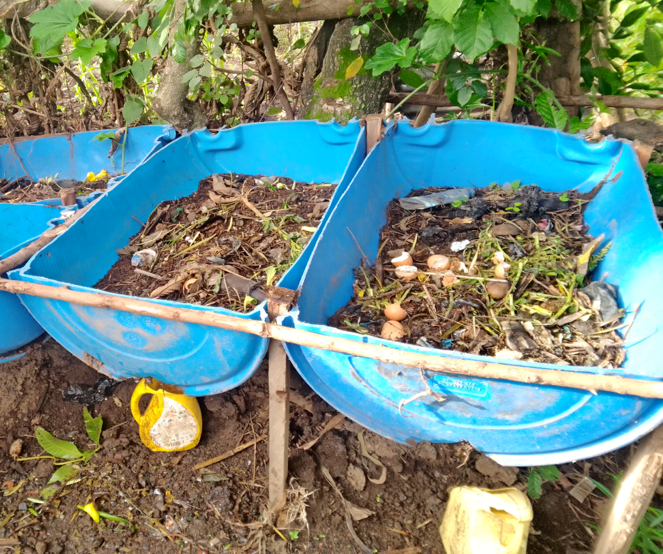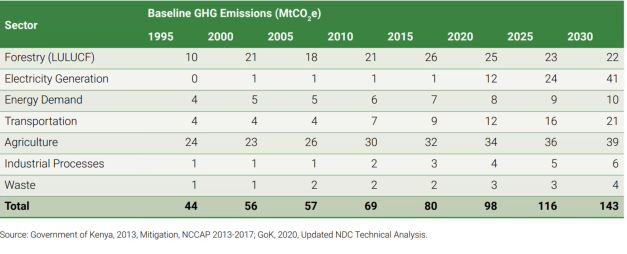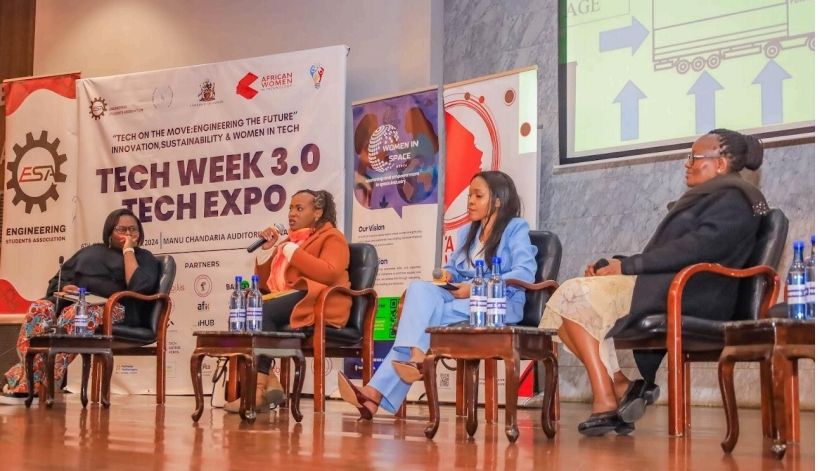YWCA urges indigenous groups to embrace Climate Smart Farming

By Kenn Osoro
Young Women’s Christian Association (YWCA), Kenya has called for a need to adopt the use of the Climate Smart Agriculture Strategy towards achieving climate resilient low carbon agriculture.
This is an innovation that seeks to boost agricultural production, enhance profitability, and lower and combat ever-increasing emissions from agriculture, by reducing the use of technological emitants such as generators during irrigation.
Climate Smart Agriculture (CSA) specifically targets to boost the production of most rural farmers, youth, and marginalized groups who are in arid and semi-arid areas.
In the virtual event dubbed ‘Feeding Africa Through Youthful Interventions’ that brought together hundreds of youths aimed at adapting to climate change and building the resilience of the agricultural system, while minimizing emissions, Bob Aston- Trainer and Project Officer in Arid Lands Information Network (ALIN), reiterated on the need to fully adopt this technique.
“This is in line with the government’s strategy to develop mechanisms that minimize greenhouse emissions from agriculture.” He stated.
Youthful interventions in the agricultural value chain innovations, inventions, and value addition will not only help harmful gas-related emissions but also ensure food security in the country.

Agriculture still plays a vital role in the country’s gross domestic product (GDP), but this will even see an upward trajectory when the youths who are the majority (Census 2019), embark on agribusiness, although Keroule Okumu- a member of United Destiny Shapers Kisumu based CBO, allays fears over the same.
“The impact of agriculture will come to a reality upon the transformation of the mindset, attitude, behavioral change and perception of youths towards it,” Okumu said.
Smart Climate Agriculture as a strategy encompasses innovations and opportunities in agriculture. Such inventions include fish farming, tree nurseries, cone gardens, black soldier flies, and vermiculture among others.
A cone garden is an urban farming use of minimal space with high production. One cone garden can carry up to 150 seedlings.
Read Also: Reclaim Our Lands, Forests, and Rivers: A CSO Review of Kenya’s Amended Climate Change Act
Youths in Kisumu have embraced the use of multistorey garden which also occupies a very minimal space with high production. It is also easy to construct. This has seen the youth members in United Destiny Shapers Kisumu-based CBO construct them for the area residents.
Black Soldier fly on the other hand feeds on solid food wastes, the food remnants and substrates are then used as organic manure. After one and a half months, they are sold as feeds for poultry and pigs. Research shows that they are rich in proteins.
Vermiculture is feeds to chicken and fish. Their excretory urine acts as a pesticide. One kilogram of red worms costs Ksh. 500.

Other than the above-mentioned successful CSA projects that have effectively empowered youth, women, and persons with disabilities. Bob Aston added that youths have also adopted innovations around drip irrigation.
“There are various innovations that youths are adopting in different counties, particularly in the ASAL counties where youths have embraced opportunities around the use of drip irrigation because of challenges of inadequate water and drought.”
“In Kajiado county, most youth farmers have been using drip irrigation to increase productivity and to ensure that they don’t depend on rain-fed agriculture. they do this to avoid heavy losses during scarcity in rainfall.” He added.
The government rolled out Kenya’s Climate Smart Agriculture Implementation Framework (2018-2027) both at the national and county level to provide a guideline on low-carbon agriculture to combat the effects of climate change.
Among these guidelines were policies such as the Ministry of Agriculture, Livestock, Fisheries, and Cooperates Policy (2021) aimed at leveraging the use of technology to ensure that youths are engaged across the agriculture value chain.
Other subsequent policies and strategies include Marketing strategies recently developed (2023-2032)- a ten-year strategy with a key objective of ensuring the government mobilizes and builds the capacity of youths on agricultural market information.
This includes how to lease agricultural land for farming owing to the fact that culturally most youths do not own land.
Marketing Strategy develops financial products mostly targeting youths and women and engaging them in the agricultural sector.
Other strategies set by the govt include Kenya Youth Agribusiness Strategy 2018-2022 which positions the youth at the forefront of agricultural growth transformation. This strategy has adopted various initiatives aimed at involving youth in Kenya’s Climate Innovation.
Various county governments have in the past two months relied on this strategy to advertise for positions and innovations in agribusiness specifically targeting youth.
Bothered by some of the hard-hit drought-affected areas last year, the Ministry of Agriculture is in a move to fully embrace climate-smart agriculture.
“Last year when the country experienced the longest drought, 4.4 million Kenyans required humanitarian assistance, as of now, due to floods, farmers are still affected especially in Garissa where the flood sweeps away their crops,” Bob Aston averred.
Similar discussions on agriculture and climate change were evident during the launching of the third National Climate Change Action Plan for 2023-2027 presided over by President William Ruto at the Africa Climate Summit.
This is even as the national treasury is implementing the locally-led climate action program funding as a key financing mechanism in agriculture to hoist productivity. The plan is geared towards mitigating the effects of drought in various ASAL counties.
In 2017 at COP23, the conference had a declaration on a landmark decision that recognized the role of agriculture in tackling climate change under the United Nations Framework Convention on Climate Change (UNFCCC).
The landmark dubbed Korovia Joint Work on Agriculture provided modalities on how countries can engage through organizing expert conferences, seminars, and workshops, as such, this paved the way for countries to constructively network towards a possible solution to climate change effects brought about by agricultural emissions.
“Initially before Korovia Joint Work on Agriculture during COP23, aspects of agriculture were not that weighty during the conference of parties, they were not being brought up strongly until COP23 in 2017, where countries agreed on the Korovia Joint Work on Agriculture.” Aston lamented.
A quick review of discussions in COP27 in Egypt, countries agreed on a four-year work plan for the implementation of climate action on agriculture and food security. This, however, still forms part of the discussion in COP28.
Most discussions and deliberations on agriculture and climate change will be on 10th December 2023 in COP28.
The conference will have a declaration on resilient food systems, sustainable agriculture, and climate action.
In collaboration with other like-minded institutions, YWCA is keen on improving coordination and collaboration with stakeholders, government, and private sectors towards promoting climate resilience pre-COP28.
If Kenya embraces the current development patterns then it must be prepared for increased agricultural emissions.
From the projected statistics, if the country continues adopting new technological agricultural harmful gas emissions, then agricultural emissions could increase by about 78 percent by 2050, this is according to updated NDC technical analysis projected data from the government.

The projection of agricultural emissions as of 2020 was 34 metric tonnes of carbon dioxide emissions. The projection however allayed fears that electricity generation will surpass agricultural-related emissions by 2030. Efforts by the government to reduce emissions are however underway.





